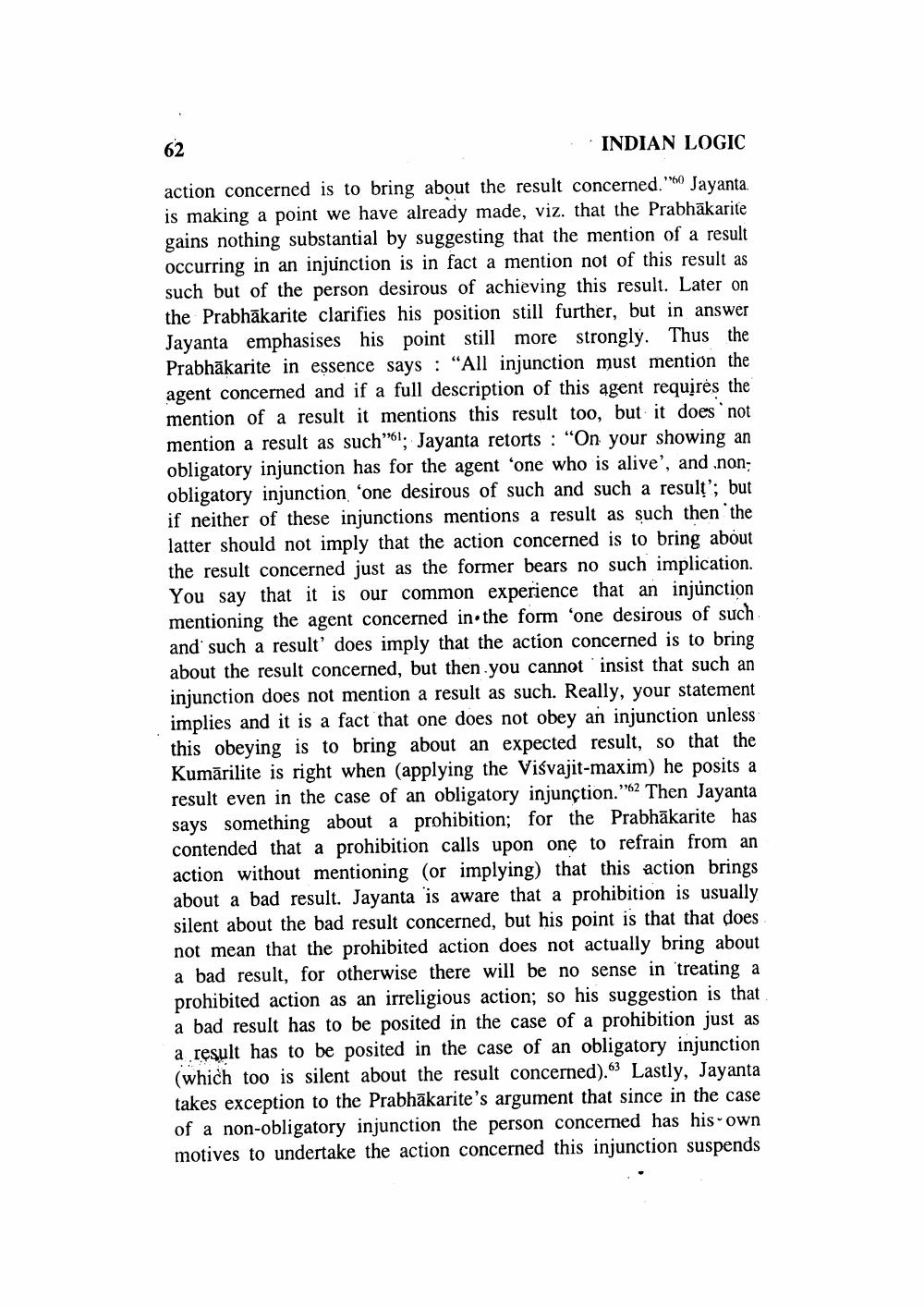________________
INDIAN LOGIC
action concerned is to bring about the result concerned, "60 Jayanta, is making a point we have already made, viz. that the Prabhākarite gains nothing substantial by suggesting that the mention of a result occurring in an injunction is in fact a mention not of this result as such but of the person desirous of achieving this result. Later on the Prabhākarite clarifies his position still further, but in answer Jayanta emphasises his point still more strongly. Thus the Prabhākarite in essence says: "All injunction must mention the agent concerned and if a full description of this agent requires the mention of a result it mentions this result too, but it does not mention a result as such"61; Jayanta retorts : "On your showing an obligatory injunction has for the agent 'one who is alive', and nonobligatory injunction 'one desirous of such and such a result'; but if neither of these injunctions mentions a result as such then the latter should not imply that the action concerned is to bring about the result concerned just as the former bears no such implication. You say that it is our common experience that an injunction mentioning the agent concerned in the form 'one desirous of such and such a result' does imply that the action concerned is to bring about the result concerned, but then you cannot insist that such an injunction does not mention a result as such. Really, your statement implies and it is a fact that one does not obey an injunction unless this obeying is to bring about an expected result, so that the Kumārilite is right when applying the Visvajit-maxim) he posits a result even in the case of an obligatory injunction."2 Then Jayanta says something about a prohibition; for the Prabhākarite has contended that a prohibition calls upon one to refrain from an action without mentioning (or implying) that this action brings about a bad result. Jayanta is aware that a prohibition is usually silent about the bad result concerned, but his point is that that does not mean that the prohibited action does not actually bring about a bad result, for otherwise there will be no sense in treating a prohibited action as an irreligious action; so his suggestion is that a bad result has to be posited in the case of a prohibition just as a result has to be posited in the case of an obligatory injunction (which too is silent about the result concerned).63 Lastly, Jayanta takes exception to the Prabhākarite's argument that since in the case of a non-obligatory injunction the person concerned has his own motives to undertake the action concerned this injunction suspends




